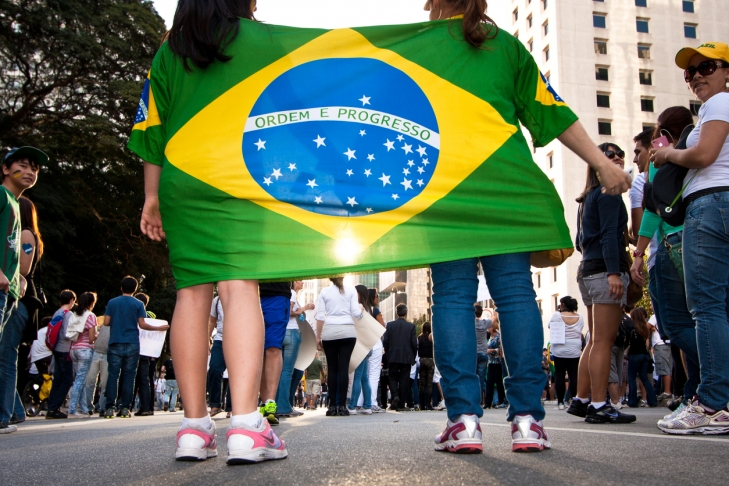
South America’s biggest country attempts to chart a new economic course under a controversial president
For Brazil’s 56th Legislature of the National Congress, about 30 political parties are represented in the Chamber of Deputies, the lower house. While global media attention has focused on the election of President Jair Bolsonaro, it is the difficulty of building consensus for reform – constitutional and economic – that shapes the political reality in Brasilia.
“You have to bring about a coalition of parliamentarians in both houses to get to the high threshold that is needed for constitutional reforms,” points out Flavio Damico, Brazilian Ambassador to Singapore, referring to the three-fifths majorities required in both the Chamber of Deputies and the Senate. It is a roadblock to ongoing pension reform efforts that are key to reviving a stumbling economy that needs foreign investment. It is hard, the Ambassador says, but by no means impossible.
“What we are trying to do is give incentives for the private sector to invest,” he explains. “Brazil is trying to open up its economy to attract foreign investors in areas in which we need them the most, and key among those is infrastructure. We are an economy that depends heavily on the export of commodities, and that requires the necessary infrastructure – roads, railways, ports, airports etc.”
Where previous administrations subscribed to state-led development, the new president has expressed his commitment to the free market by appointing Paulo Guedes as the economic minister. Guedes is a Chicago-trained economist with well-known pro-market credentials. At the same time, the country that is known for the Carnaval do Brasil and cultural diversity appears to have embraced social conservatism.
“There is a tilt towards liberalism on the economic front, and a change in the mood of the country in the area of social policy,” explains Ambassador Damico. “What you are witnessing in the country is social conservatives and economic liberals coming together for the first time to lead a government. Those are different perceptions that always existed in the country but they were never in coalition. For the first time there is a political figure that became the depository of the hopes of those different camps.”
President Bolsonaro and foreign policy
President Bolsonaro, who has been dubbed the ‘Trump of the tropics’, has uttered comments that have raised eyebrows and made comparisons with his American counterpart inevitable. Ambassador Damico says “people will always have a preference of one candidate over another” and that the president should be judged by his performance instead.
But what about the significant number of military officers in his cabinet, not including the president himself as a former Army captain and his Vice President, retired Army general Hamilton Mourão? Should the military presence – the highest since the 1964-1985 military dictatorship – not raise worries of a return to the bad old days?
“No, it shouldn’t,” Damico tell Perspectives@SMU. “Some people try to point out that there are many ex-military officers in ministerial positions in this government, just like there were in previous administrations of military rule. Nothing could be further from the truth.
"The military are among the most qualified cadres with experience to run technical positions. Their military academies and engineering schools play a role which is not much different from the École Nationale d'Administration in France to provide a group of qualified cadres to run the administration.”
On foreign policy, the president’s on-again, off-again stance on the Paris Accord was settled in favour of staying during the World Economic Forum at Davos in January, although the decision to withdraw Brazil’s invitation to host the U.N. climate meeting in November highlights the uncertainty of that commitment. Of more immediate concern would be the ongoing crisis in neighbouring Venezuela.
“The Brazilian government, along with our friends from the Lima group, decided to consider the election of President Nicolas Maduro as illegitimate, recognising instead the government led by Juan Guaido,” the Ambassador explains. “It’s a long-term crisis. Most of the countries in the region have sided with us on this issue, including the U.S.
“But countries from other regions have pledged some measure of support for Mr. Maduro. It’s a slow-moving crisis and eventually something has got to give. But we believe that a transition has to be conducted by the Venezuelans themselves, and it must be done in a peaceful way. Venezuela has been suffering for too long; its population deserves better.”
Ambassador Flavio Damico was the speaker at the recent SMU Wee Kim Wee Centre Conversation with Ambassadors event “Brazil and Singapore – a Comparative View” held on January 29, 2019.
Follow us on Twitter (@sgsmuperspectiv) or like us on Facebook (https://www.facebook.com/PerspectivesAtSMU)
Last updated on 04 Mar 2019 .

